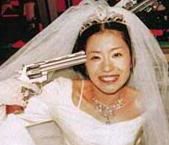

|
Korean Job Discussion Forums
"The Internet's Meeting Place for ESL/EFL Teachers from Around the World!"
|
| View previous topic :: View next topic |
| Author |
Message |
tomato

Joined: 31 Jan 2003
Location: I get so little foreign language experience, I must be in Koreatown, Los Angeles.
|
 Posted: Fri Jul 18, 2003 11:53 am Post subject: Korean word frequency trivia Posted: Fri Jul 18, 2003 11:53 am Post subject: Korean word frequency trivia |
 |
|
Here are some goodies from the Yonsei University word frequency list:
Number 1 on the list is the suffix -��.
Lucky 7 is the suffix -��.
Unlucky 13 is the suffix -��.
Number 69 is the suffix -��.
For the Biblically-minded, number 666 is �ڽ�, which means "offspring."
In case you're interested in triple-zero points, number 1000 is -�� (whatever that means) and 2000 is the suffix -�����.
In case you're interested in repeated digits, number 1111 is ��, which means "candle," and number 2222 is ȣ����, which means "tiger."
Here are some historical dates: Number 1066 is ������ (whatever that means). Number 1776 is ��, which means "vessel." My apologies to those who are from other English-speaking countries; I only know the significant dates in US history.
If you admire the music of Johann Sebastian Bach, you may be interested in knowing that number 1685 is ü�� (whatever that means). In honor of the Korean independence from Japan, we shall note that number 1945 is ���ϴ�, which means "come near doing," or "almost do." For 2003, the present year, the word is ȣ��, the Koreanized spelling of "hotel."
If you know the suffixes -��, -��, -��, and -��, your reading comprehension is at least 10%. The bad news is that the slope increases from then on. The 50% point is number 78, which is the suffix -��. The 60% point is number 234, which is the bound noun ä. The 70% point is number 614. The word is ����, meaning "process." To reach the 80% point, you must arrive at number 1660. At this point, the word is å��, which means "desk." From there to the 90% point is an even wider stretch. You must study as far as number 5778. The word is ����, meaning "ground" or "space" depending on how the Chinese characters are written.
The last word on the list is number 64666. The word is ���� (whatever that means), and that brings you up to 98.7%.
(To convert the garbage to hangul, click on Bogi/Inkoding/Hangukeo.) |
|
| Back to top |
|
 |
Son Deureo!
Joined: 30 Apr 2003
|
 Posted: Fri Jul 18, 2003 5:08 pm Post subject: Posted: Fri Jul 18, 2003 5:08 pm Post subject: |
 |
|
Interesting post, where can I see a copy of this list you're talking about?
I'd be curious to look it over. |
|
| Back to top |
|
 |
gang ah jee

Joined: 14 Jan 2003
Location: city of paper
|
 Posted: Sat Jul 19, 2003 1:46 am Post subject: Posted: Sat Jul 19, 2003 1:46 am Post subject: |
 |
|
this is about frequency in written language, right? I'm inclined to think the list (especially the most common morphemes) would be quite different in analysis of spoken korean.
like in written English the most common word is 'the'. in spoken english it's 'I'. |
|
| Back to top |
|
 |
tomato

Joined: 31 Jan 2003
Location: I get so little foreign language experience, I must be in Koreatown, Los Angeles.
|
 Posted: Sat Jul 19, 2003 9:43 am Post subject: Posted: Sat Jul 19, 2003 9:43 am Post subject: |
 |
|
Hello, Son Deureo!
And thank you for your interest in my message!
I had to put up a struggle to find the list myself, and to be truthful, I don't remember where I found it.
Anyway, here is a Web page for foreigners who have inquiries of any kind about Yonsei University:
http://www.yonsei.ac.kr/yu/eng/contact.html
and here is what is listed on that page:
Phone : (82-2)2123-3486~9, 3535.
Fax : (82-2)393-7272..
Address : Yonsei University 134 Sinchon-dong, Seodaemun-gu,
Seoul 120-749. Korea
E-mail : [email protected]
Here is the name of the agency which published the list:
�������б� ��������� �߿�����
and here is the title of the list:
���� �ѱ����� ���� �� ���
(To turn the garbage into hangul, click on Bogi/Inkoding/Hangukeo.)
At the time I bought the list, the price was 70,000 won.
I got a thick volume which lists all the words in numberical order, another thick volume which lists all the words in ganada order, and a thin volume which I still haven't figured out.
I hope that helps some.
PS Yes, Kangaji, this is a compilation from written Korean.
I find it interesting that the word annyeong is way down on the list. |
|
| Back to top |
|
 |
Zyzyfer

Joined: 29 Jan 2003
Location: who, what, where, when, why, how?
|
 Posted: Sat Jul 19, 2003 4:54 pm Post subject: Posted: Sat Jul 19, 2003 4:54 pm Post subject: |
 |
|
| Because nobody writes annyoung. And, in spoken Korean, ui(possessive article) is omittable, blah blah blah, yadda yadda yadda. |
|
| Back to top |
|
 |
|
|
You cannot post new topics in this forum
You cannot reply to topics in this forum
You cannot edit your posts in this forum
You cannot delete your posts in this forum
You cannot vote in polls in this forum
|
|

